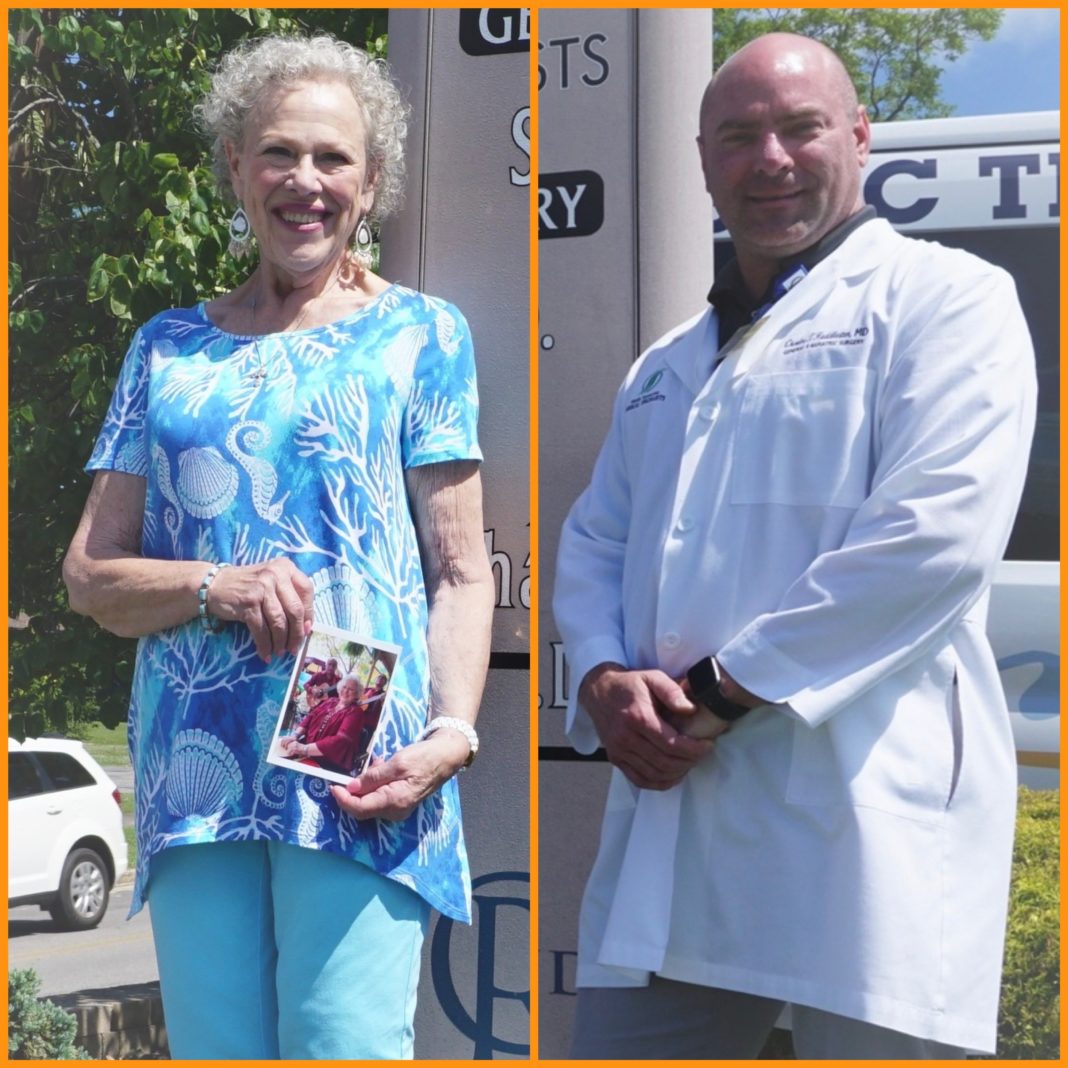COOKEVILLE — Weighing nearly 285 pounds five years ago, Colleen Lentini had a number of health issues, including hypertension, GERD, sleep apnea, gout, neuropathy, asthma, hypothyroidism, aortic stenosis and heart murmur that she was on multiple medications for.
It was the aortic stenosis diagnosis that got her on the path to wellness.
“The former pastor of my church died from it after he retired,” she said. “That’s what woke me up.”
The path hasn’t been easy. She gained weight due to recurring foot injuries which required surgeries and had to have a knee repaired as well.
Her cardiologist, Dr. Stacy Brewington, said with aortic stenosis, she had to lose weight. But with her foot and knee injuries, that was not as easy as it sounded.
So she consulted with Dr. Charles Huddleston, surgeon at Middle Tennessee Surgical Associates, about bariatric surgery.
There are three options when it comes to bariatric surgery procedures: restrictive, which is aimed at limiting the size of the stomach; malabsorptive, aimed at decreasing the absorption of fat and/or calories; and a combination of restrictive and malabsorptive.
“I really had to work hard before the actual surgery was done,” she said.
That includes a comprehensive psychiatric evaluation, a thorough medical exam by an internist or primary care physician, dietary counseling by a registered dietician, instruction in an exercise program by a personal trainer or physical therapist, six months in a physician supervised weight loss program and participation in a weight loss support group.
“They really teach you a lot at those seminars,” Lentini said.
She had her surgery June 13, 2019, and has lost a total of 155 pounds to date.
“I don’t take medication for hypertension, GERD, sleep apnea or treatment for gout anymore,” she said. “My neuropathy and asthma are also better.”
It’s been a long process. Weight loss doesn’t happen overnight.
“You have to change your entire lifestyle,” she said. “You can’t eat what you used to. You have to change your approach to cooking and what you can and can’t eat. It’s about learning where to balance things.”
She visits Dr. Huddleston every six months for a follow-up and Dr. Brewington to monitor her aortic stenosis.
“Teamwork like this allows patients to have better outcomes,” said Paul Korth, CRMC CEO. “Having bariatric surgery options here, whether it’s traditional or robotic, can have a great impact on a person’s well-being.”
Lentini is grateful the service is available close to home.
“They want you to succeed and will help you in any way possible,” she said. “I’m a new person thanks to Dr. Huddleston and the team at CRMC who made this surgery possible. I got great treatment here. It was a no-brainer to come here to get it done. It’s close to home. This type of surgery is not easy to go through, but it’s worth it.”
Cookeville Regional Medical Center is celebrating 100 years in 2021. It began as a 15-bed private clinic built by a local surgeon and has grown to a 269 bed Regional Center on a 55-acre campus featuring state-of-the-art Cardiac care, Orthopedic care, Cancer Center, Robotic surgery and much more.









